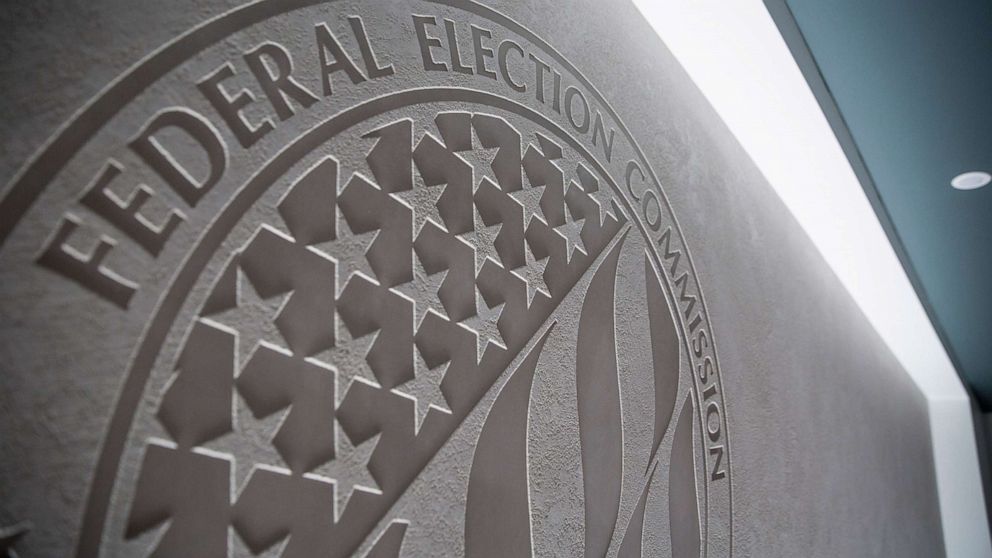


As the pivotal 2020 election rapidly approaches, the Federal Election Commission, an independent federal agency charged with overseeing U.S. elections, is left with no enforcement power of any substantive matters with the resignation of Vice Chairman Matthew Petersen.
Petersen, who has served on the commission for 11 years, announced on Monday that he will be stepping down from the FEC by the end of this month. The latest departure leaves the FEC with only three out of six commissioners, which means that the agency is one vote short of the minimum of four votes needed to initiate audits, engage in rulemaking, vote on enforcement matters, or even to issue an advisory opinion or to hold meetings.
The commission will continue to perform its important day-to-day duties of making details of 2020 campaign contributions and expenditures available and its enforcement arm will still be review complaints and make recommendations to the commission on those matters. But without a quorum, as FEC Chairwoman Ellen Weintraub stressed in a statement on Monday, the commission's vote on those matters will be delayed.
"Vice Chairman Petersen's resignation makes it imperative that the President speedily nominate new commissioners and that the Senate move expeditiously to confirm them," Weintraub wrote.
But even before Petersen's resignation, the FEC has long faced criticism that it has been unable to act on important matters because of partisan divide and frequent deadlocks. The FEC, where no more than three commissioners can be identified with one political party, has had just four commissioners since Democrat Ann Ravel left in 2017 and Republican Lee Goodman left last year. And now all three of the remaining commissioners -- Democrat Weintraub, Republican Hunter and independent Steven Walther -- are sitting on expired terms. Commissioner Weintraub's term, for instance, expired in 2007 but Presidents Bush, Barack Obama and Donald Trump all failed to nominate a new person to replace her.
(MORE: Buttigieg sets high campaign fundraising bar, Biden raised more per day than any other Democrat)Trump is now free to fill all six seats in the commission, a job that has been traditionally done with recommendations from the opposite party. After Ravel's departure in 2017, President Trump did name Texas-based attorney Trey Trainor, who previously served as general counsel to the Republican National Convention platform committee during 2016 cycle and helped then-candidate Trump seize GOP nomination. But Trump's FEC pick, which has to be approved by the Senate, has been stalled in Congress for nearly two years, possibly because of the Trump administration and the Democratic Senate leadership has yet to agree on the Democratic pick to go with Trainor's nomination.
The FEC has since been described as dysfunctional by critics, unable to make ruling on significant cases brought before it. In one of the most recent cases, because the agency was equally divided on the matter, the FEC was forced to drop a complaint from the campaign finance advocacy group Campaign Legal Center accusing Hillary Clinton's presidential campaign of illegally coordinating with a pro-Clinton super PAC Correct the Record during the 2016 election.
Some have praised the deadlocks as the strength of the FEC, including the soon-to depart Republican commissioner Petersen, who in his resignation statement highlighted his role in expanding the type of money that can be spent in federal elections through the landmark Supreme Court decision in 2010, Citizens United v. FEC, which allowed unlimited contributions and independent expenditures from individuals, corporations and other outside groups.
"Through rulemakings, enforcement matters, and advisory opinions, I've worked to shape the post-Citizens United legal framework governing Super PAC operations (and the extent to which federal candidates may be involved with them), as well as corporate and union political speech," Petersen wrote in his statement.
(MORE: Outside fundraising groups plow ahead toward 2020, with or without Democratic nominee)But former Democratic commissioner Ravel, who has been a vocal critic of gridlocks within the FEC, said that with the watchdog agency without the ability to actually enforce matters, campaigns and outside groups will be emboldened to even further stretch campaign finance laws.
"With the commission incapacitated, now there's no reason for them to abide by rules," former commissioner Ann Ravel told ABC News.
Several of the Democrats vying for the White House in 2020, including big money critics Sens. Elizabeth Warren and Bernie Sanders, have made overturning Citizens United and reforming the power of money in politics one of their priorities.
Former Republican FEC Chairman Trevor Potter, who now heads Campaign Legal Center, also urged the Trump administration and the U.S. Senate to waste no time in nominating new commissioners, emphasizing that the public's right to fair and transparent election in 2020 and beyond is at stake.
(MORE: Midterms spending overview: Total expected to reach $5.2 billion)"In the 2020 election, political spending is expected to reach nearly $10 billion," Potter said in a statement. "With the campaign season in full swing, there is no time to waste in securing our democracy. Russia exploited a weak FEC to covertly meddle in U.S. elections through digital ads and the FEC has a pending rulemaking to tighten disclosure requirements. If President Trump and the U.S. Senate commit to restoring the FEC, we could properly police foreign interference in elections, prevent illegal coordination between candidates and super PACs, stop government contractors from attempting to buy contracts with campaign donations, and much more."
Last time the FEC had fewer than four members was in 2008, when former President George W. Bush appointed Petersen, now Trump's former White House counsel Don McGahn, Cindy Bauerly and Caroline Hunter, who still serves in the FEC.